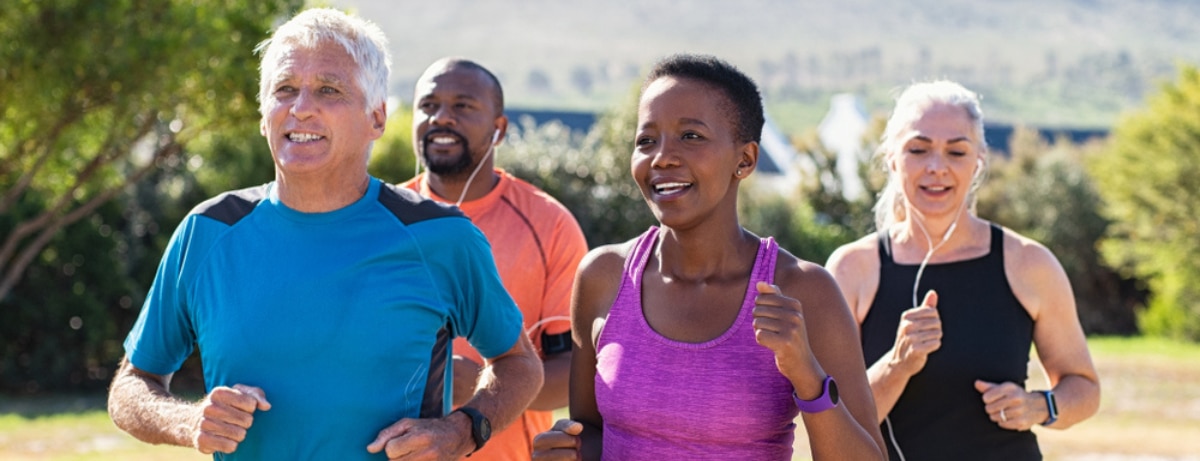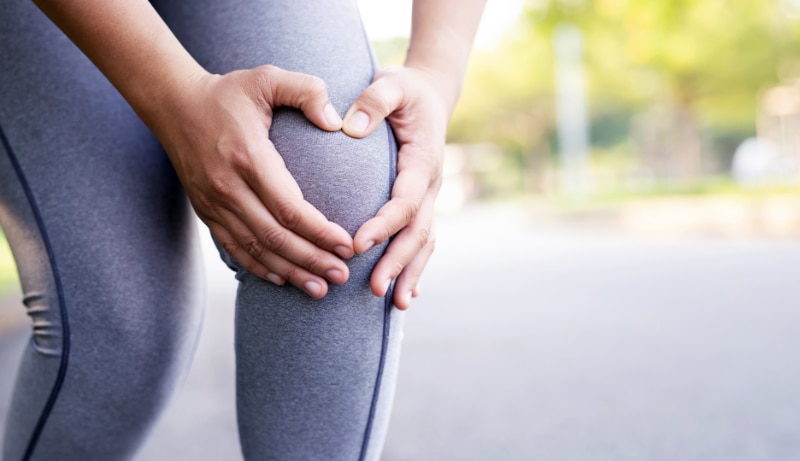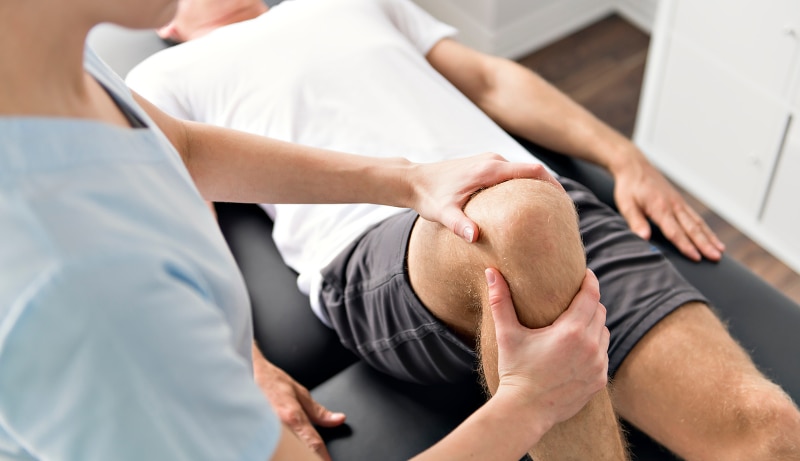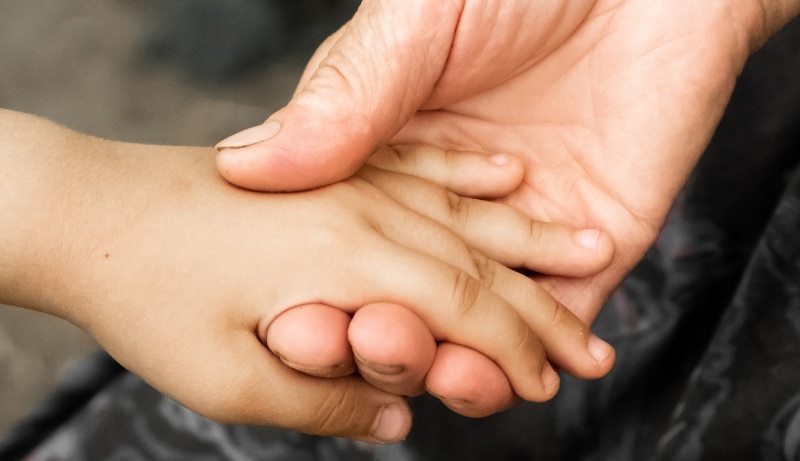10% off £25 OR 15% off £35

Importance of looking after your bones from a young age'
06 Apr 2023 • 21 min read
- Health Hub Home
- Conditions
- Arthritis
- Importance of looking after your bones from a young age'
When you think of arthritis, you might picture someone a bit older. But the truth is it can affect people at any age.
There are more than 100 types of arthritis, all of them different.¹ Even if you’re fit and well now, the habits you form early on can determine your health for life.
And – while staying active is a huge part of healthy joints, bones, and muscles – there's more to it than that! Find out how to help prevent different types of arthritis, as well as ways to manage it and get support if you’re a young adult living with arthritis.
Skip to:
What is arthritis?
Arthritis is a condition that causes pain and inflammation in the joints. ²
The two most common types of arthritis are: ²
- Osteoarthritis: which mainly affects the smooth cartilage between your joints
- Rheumatoid arthritis: where the body’s immune system targets affected joints
Arthritis can make your usual movement difficult or painful.
About 10 million people in the UK live with arthritis. It most often develops in those in their late 40s or older, but it can affect people of any age (including children). ³
Debunking the myths
Debunking the myths
We’ve just mentioned that arthritis is more common as you get older, but that’s not to say you’re not at risk if you’re young.
It’s currently got a reputation as an “old person’s disease”, but anyone of any age can develop different kinds of arthritis.
And, even if you don’t experience arthritis until a later age, it’s important to develop habits now that could lower your risk in the future.


How you can get it
There are many different types of arthritis beyond osteoarthritis and rheumatoid arthritis, although they’re the most common.
Some types, like osteoarthritis, occur with natural wear and tear of the cartilage, so they’re more likely to happen if you’re older.
Other types may be brought on by autoimmune illnesses, infections, or other types of illness. ⁴ And arthritis is genetic for some people.
Often, your risk of arthritis can be a mix of these things: for example, gout develops when there’s too much uric acid in your body. Sometimes you might have too much because of your diet, and sometimes your body naturally produces too much or can’t process it properly.
How to help prevent arthritis
How to help prevent arthritis
It’s not possible to completely remove your risk of developing arthritis – but there are changes you can make early to help lower your risk of the most common types, like osteoarthritis.
It’s most important to take steps early, but you can make joint- and bone-friendly changes at any age. ⁵
Take a look at the below – are there any everyday changes you can make to help improve your joint, bone, and muscle health? ⁵


- Get at least 30 minutes of moderate aerobic exercise (like jogging, brisk walking, or cycling) 5 times per week
- Do muscle-strengthening activities (like lifting weights, hill walking, or yoga) at least twice a week ⁶
- Reduce time spent sitting or lying down and break up long periods of not moving with activity – especially if you work from home ⁷
- Follow a balanced diet: getting all the nutrients you need can help keep your energy levels high and your joints, bones, and muscles strong. Maintaining a healthy weight is also one of the most significant ways to reduce pressure on your bones and keep them strong and dense. You also need plenty of calcium to keep your bones strong, as well as vitamin D to help your body use the calcium effectively.⁸
- Stay hydrated: water makes up a significant portion of your joints, bones, and muscles. The government recommends drinking 6-8 cups of fluid every day.⁹
- Don't smoke: Smoking is associated with a higher risk of osteoporosis.¹⁰
- Limit your alcohol intake: the NHS recommends drinking no more than 14 units of alcohol per week.¹¹
Does bad posture increase my chances?
It’s not just a myth; slouching or sitting out of place could increase your risk of joint and bone-related conditions like arthritis.
Poor posture forces your body to overwork certain muscles. While it may only result in an occasional ache or pain short-term, prolonged bad posture (such as “nerd neck”, caused by sitting incorrectly at your desk) can cause inflammation that may lead to long-term damage in the nearby joints.¹²
In fact, for every inch you tilt your head forward, your spine takes on almost double the amount of pressure to support it.¹²
And sitting or standing with your joints misaligned (think leaning to one side or crossing your legs) places harmful pressure on them, potentially speeding up the “wear and tear” of the smooth cartilage between them.
If you’re sitting at your desk, try to position your screen at eye level and sit at least two feet away from it.¹³ Keep your arms and legs uncrossed, with both feet on the floor. Your knees and elbows should be at a 90-degree angle.
Even if your posture is fairly good, staying sedentary can increase tension in your joints, bones, and muscles – so make sure you’re getting up for a stretch regularly throughout the day.


Arthritis symptoms
There are many different types of arthritis, so the symptoms you could experience will be different.
However, you should seek medical advice if you have: ²
- Pain or tenderness in your joints
- Stiffness or restricted movement in your joints
- Weakness or muscle wasting
- Inflammation in and around the joints
- Warm red skin over the affected body part
If it’s arthritis, your doctor should then be able to give you a more accurate diagnosis and discuss treatment options based on your individual symptoms.
What’s the difference between arthritis and osteoarthritis?
Osteoarthritis is a type of arthritis; it’s the most common type in the UK and may be the first kind you think of.
It happens when the cartilage between the joints wears down. This usually happens with age, but other factors – like the “wear and tear” we’ve spoken about above – contributes to it, too.
This can cause pain, inflammation, and restricted movement in the joints. Affected areas can become red and swollen, and sharp, bony growths might form around the joints. ¹⁴
The exact cause of osteoarthritis is unknown, but it may be more likely to develop with age. Other factors may also increase your risk, like
- Genetics
- Not allowing your joints proper time to recover after an injury
- Obesity
Women are also more prone to osteoarthritis than men; it’s thought to be due to the changes in bone density and hormones that occur during and after menopause. ¹⁵


But it’s just one type! Osteoarthritis can co-exist with other forms of arthritis, too – especially if the joint has become severely damaged. ¹⁴
What parts of your body can arthritis affect?
Arthritis can affect any part of the body; we have hundreds of joints everywhere.
That said, some types of arthritis are more likely to affect particular areas of the body:
- Osteoarthritis often affects the knees, hips, and hands ¹⁴
- Rheumatoid arthritis often affects the hands, feet, and wrists ¹⁶
- Gout often affects the big toe, but may also affect your feet, hands, wrists, elbows, or knees ¹⁷
- Ankylosing spondylitis (AS) primarily affects the spine, and may also cause pain in the hips, knees, and ribs ¹⁸
How to manage arthritis
Arthritis unfortunately can’t be cured, which is why it’s so important to take steps to prevent it wherever possible.
If you already have arthritis, the goal is to limit your pain and inflammation and keep your body as mobile as possible.
Managing your arthritis may look different depending on the type you have and your levels of pain and mobility. But you may be able to stay as comfortable and mobile as possible by: ¹⁹


- Maintaining a healthy weight; being over the healthy weight for you may increase pressure on your joints, and being underweight may affect your bone strength
- Considering medication to help with pain – speak to your GP about this
- Attending therapies such as physiotherapy to help retain your mobility and flexibility
- Staying active wherever possible; exercise strengthens our bones and muscles. However, speak to your GP or physiotherapist if you're unsure, as doing the wrong kind of exercises or exercising too hard may cause more damage
- There’s some research to suggest that using a TENS machine may help relieve osteoarthritis-related pain, though more conclusive evidence is needed. It might be worth trying alongside other interventions (such as modified exercises or a treatment plan advised by your healthcare provider). ²⁰
- You should also consider your wellbeing and mental health, especially if you find your arthritis limits the things you’re used to doing. Some people find certain types of therapy, like cognitive behavioural therapy (CBT), useful if they’re experiencing poor mental health because of their arthritis. Others might decide to practice mindfulness or get plenty of time outside to improve their general wellbeing.
Different methods work for different people, so allow yourself the time you need to find what works for you, as well as the time to process the ways your life or your habits might be different to what you’re used to.
How it affects you: older vs. younger people
How it affects you: older vs. younger people
Arthritis symptoms are the same, no matter your age. But you might find it has a different impact depending on your stage of life.
Feeling limited by your arthritis can be upsetting whether you’re older or younger. But it might particularly impact your life if your arthritis affects your ability to work, play sports you enjoy, or be active with your kids.


During a time where you feel expected to progress in work, hobbies, and social relationships, arthritis might leave you feeling held back.
For those even younger – such as children with juvenile idiopathic arthritis (JIA) - it might affect their ability to play at school or feel like their peers.
You might want to consider joining a support group for young people and adults with arthritis, or asking for accommodations at work, school, or university.
The final say
With the right support and methods, it’s possible to manage your arthritis and stay as comfortable and active as possible.
But it’s best to practice good joint, bone, and muscle health habits now to help lower your risk and stay well.
Services like Versus Arthritis provide information and support for those with arthritis and their family and friends; find out what’s available in your area or call their free helpline on 0800 5200 520.
And our qualified advisors are on hand in store and online to give personalised, confidential advice – whether that’s on your physical health or the effects on your wellbeing. Book a free, 15-minute video chat with our experts to discuss anything to do with health and wellness that you might have on your mind.
Age doesn’t determine health, good or bad – so let’s stay active and keep doing the things we love wherever we can.
Last updated: 31 March 2023
- https://www.arthritis.org/health-wellness/healthy-living/managing-pain/understanding-pain/sources-of-arthritis-pain
- https://www.nhs.uk/conditions/arthritis/
- https://www.nhsinform.scot/illnesses-and-conditions/muscle-bone-and-joints/conditions/arthritis
- https://my.clevelandclinic.org/health/diseases/12061-arthritis
- https://westessexccg.nhs.uk/news-and-publications/publications/patient-information-materials/patient-information-booklets/2342-nhs-healthy-habits-spreads-v2/file
- https://www.nhs.uk/live-well/exercise/strength-and-flexibility-exercises/how-to-improve-strength-flexibility/
- https://www.nhs.uk/live-well/exercise/exercise-guidelines/physical-activity-guidelines-for-adults-aged-19-to-64/
- https://www.nhs.uk/live-well/bone-health/food-for-strong-bones/
- https://www.nhs.uk/live-well/eat-well/food-guidelines-and-food-labels/the-eatwell-guide/
- https://www.nhsinform.scot/healthy-living/preventing-falls/keeping-well/bone-health-and-falls
- https://www.nhs.uk/Live-well/alcohol-advice/tips-on-cutting-down-alcohol/
- https://health.clevelandclinic.org/health-effects-of-poor-posture/
- https://www.specsavers.co.uk/childrens-eyecare/screen-time-for-kids
- https://www.nhs.uk/conditions/osteoarthritis/
- https://www.ncbi.nlm.nih.gov/pmc/articles/PMC6332715/
- https://www.nhs.uk/conditions/rheumatoid-arthritis/
- https://www.nhs.uk/conditions/gout/
- https://www.nhsinform.scot/illnesses-and-conditions/muscle-bone-and-joints/conditions/ankylosing-spondylitis
- https://www.nhs.uk/conditions/osteoarthritis/treatment/
- https://www.cochranelibrary.com/cdsr/doi/10.1002/14651858.CD002823.pub2/full


